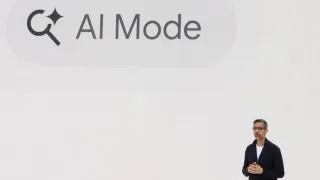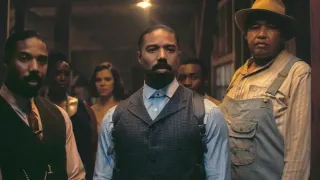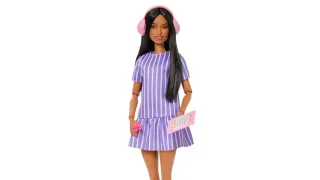March 25, 2024
Peripheral Visions: Wait and Watch
Kilian Melloy READ TIME: 17 MIN.
Peripheral Visions: They coalesce in the soft blur of darkest shadows and take shape in the corner of your eye. But you won't see them coming... until it's too late.
Wait and Watch
"They say it's stage three," Mia told me, sobbing. "They won't do anything about it."
I was confused. I held my wife in my arms as she shuddered and gasped. I should have felt strong in that moment, but I didn't I felt helpless and small, too small to protect her.
"What do you meant they won't do anything?"
"The doctor said all they can do is wait and see."
"Wait and see what?" I asked, starting to feel myself get angry. That wouldn't be helpful... not now, not with Mia... so I made a conscious effort to put my growing rage aside.
"Wait and see how it progresses."
"How what progresses? The cancer?"
"Everything."
This made less and less sense. "Does he think that maybe the cancer will stop? Or go into remission on its own?"
"No... he said that it's an aggressive type that will kill me in less than three months."
So much for a routine visit I thought. That was what Mia had anticipated hen she'd left the house that morning. A simple blood test had revealed the news within fifteen minutes, followed by a scan that confirmed the test's indications of cancer. It had taken an hour for more sensitive blood tests and more detailed scans to nail down the rest of the story.
But the rest of the story should have included viable treatment options... a timeline... and here Mia was saying they would do nothing to treat her?
I unwrapped my arms from around her, took her gently by the shoulders, and looked her in the eyes. "I don't understand. What's he talking about? None of this makes any sense."
"They're going to let me die, Paul!" she whispered, her eyes filling again.
"No, they won't. They can't. I won't. I can't." I pulled her in close again. Then, gently, I reiterated: "This makes no sense, Mia. Tell me again from the start. What are they going to do to treat you?"
"I told you, Paul – nothing!" Sobs overtook her again. She shook and gasped.
"But why?"
She struggled to speak. I held her and waited. "The doctor said the only treatments the cancer will respond to will... will end the pregnancy," she said at last.
The hesitation in her words told me what she was thinking: It would kill the baby.
"Mia, honey... I know that's not what we want, but there's not a choice. If you die, the baby does, too." She was only six weeks along.
"It's the law, Paul. The law that you voted for. If the doctor treats me, I lose the baby. If I lose the baby, he loses his medical license and goes to jail."
The law I voted for? Yes, I realized, remembering. Yes, I had voted for that law. Of course I had. It had been the right thing to do. We needed to be sure to save the children.
But we needed to save the mothers, too – didn't we?
"But... but that's not right," I told her. "There's an exception for..."
I stopped. I realized that she was right, and the doctor was telling her the truth. The law the legislature had approved two years earlier made no exception for preserving the life of an expectant mother.
I hadn't considered what that might mean at the time the vote was taken. I'd been more worried about fending of Carla DeVore, who had challenged me in the primary. The polling showed her too close for comfort; I hadn't wanted her to be able to make the rounds of talk radio of news feeds, claiming that I was a baby-killing abortion-monger, and that was exactly what she would have done if I had voted against the anti-abortion bill.
Had I ever imagined, even for a split second, that the bill would come back to exact such a terrible toll on my own family?
I held Mia close. "Don't worry," I whispered to her. "I'll fix it."
***
But I couldn't fix it.
I tried introducing a bill that would amend the law, only for legislators I considered to be longtime friends and allies to form a solid wall of resistance and accusation against me. It didn't take long for them to start calling me a "TINO" – "Theopublican in Name Only" – and declaring that I'd been a "stealth liberal" all along.
Buzzwords without a shred of truth, and they all knew it.
But that didn't stop them and their aides from flooding social media with lies about who I was and what I stood for.
I sent out my own social media messages and booked time on the news feeds – an expensive proposition, since the feeds had started charging politicians, celebrities, lobbyists, and anyone else who wanted some airtime – but it made no difference. The narrative was set, and the tsunami of hate against me and my family only grew.
I posted a photo of Mia and myself and our other three children – Michael, seven; Louisa, six; Antony, three – with the words FAMILY VALUES emblazoned across the top of the image and text below explaining that my children needed their mother but a flawed law was ensuring that she and their unborn sibling would both die in a matter of weeks unless the legislature took immediate action.
But the only action I saw taking place was that of the news media and what seemed like everyone in the state pointing fingers, hurling ugly slanders, and making threats.
I won't repeat here the things they said, the threats they made, but I will say they involved shooting up the schools my kids attended, setting fire to our house, and...
No, I won't repeat what they said here. It was too cruel, too twisted, too sick.
Who were these people?
With a deep sense of shame and betrayal, I had to face the fact that these people were my own constituents. We agreed on everything, always had...
Until now. I could not agree that my wife should be allowed to die for the sake of "saving the baby," especially when the baby, too, would die, and there was nothing medically possible that could prevent it.
The facts being what they were, the only acceptable course of action was to treat Mia. That seemed like simple, factual reasoning to me; but to them? To them such thinking was the height of amoral decadence, if not evidence of a Satanic plot to destroy the family.
It was a terrible paradox, a sadistic demonstration of political cynicism on the part of my colleagues and a mindless, even cult-like, mob behavior on the part of citizens I'd once been proud to serve. My rage and helplessness were eating at me as surely as if Mia's cancer were my own.
Then things got even worse.
***
"What do you mean the governor has 'instructed the state's attorney general to open an investigation'?" I demanded.
My aide shrugged, looking at me with cold contempt. She had always been timid and even fearful when talking to me – I liked that in my aides, I thought it made them better at their jobs. But now there was no deference, just a borderline-haughty bearing that was on the verge of getting her fired.
"That's all they said when they called," she said. I noticed, not for the first time, that while she didn't seem to be wearing lipstick, her lips were bright red – clownishly red. I wondered if that was natural or some sort of cosmetic enhancement.
"Investigating what, though?" I asked her.
"You, your family," she said. "Your promotion of divisive concepts."
"Divisive concepts?" I couldn't believe my ears but, at the same time, part of me marveled at how efficiently the state's political machinery was cannibalizing me. I'd seen it happen to others, of course; that was how the game was played these days, maybe always had been played to some extent. The divisive concepts law was another bill I had voted in favor if, never dreaming it would one day be used against me – and certainly not for trying to protect my wife and defend my family.
I turned my back on the aide, making a mental note to fire her before day's end – I didn't need the smug look in her eyes, the glare that insinuated I somehow deserved all this, that my wife had brought it on herself – and marched into my office. I picked up the old-fashioned telephone that I used for calls of a sensitive nature and dialed the governor's office.
A woman answered – Maybelle, I knew from her voice. "Governor Kirsch's office," she said.
"Let me talk to him, Maybelle."
"Senator Trondy? I'm sorry, the governor is not available to – "
"Maybelle, let me talk to that son of a bitch!" I snapped.
There was a brief, icy silence and then Maybelle said, "Paul, I'm very sorry for you and Mia. I know what a terrible time this must be for you. But you're the one who chose to challenge the law, and you're the one who's refusing to trust in God."
"You think God wants this for my family?" I knew as soon as the words escaped me that they were a mistake; of course someone like Maybelle would interpret them as an insult to her religious sentiments.
"May our sweet Lord help you in his infinite compassion, Paul, seeing that you're too blind with hate and rage to help yourself," Maybelle said, and hung up.
I gripped the phone's receiver hard, shouting curses in my mind that I would never dare utter aloud. I'd be lucky if Maybelle didn't swear out a complaint against me as soon as our call ended.
When Kirsch had taken office eleven years earlier, the first thing he'd done was fire almost all of the state government's workers and set into motion a vast restaffing scheme that relied on hiring loyalists – which meant hiring those who'd given satisfactory answers on the recruitment questionnaires that Kirsch's people had supplied to pastors across the state. Virtually every state employee had been drawn from the ranks of the most fervently faithful – something I'd applauded at the time, until it led to a near-total breakdown in the state's various departments. Those first few years were a nightmare: Roads went unrepaired despite hefty contracts going to cousins, siblings, and friends; there was no more state department of health, and rates of addiction had headed into the stratosphere in between the three pandemics we'd suffered; crime had spiraled out of control. Kirsch had cracked down and gotten things under a semblance of control, but the incompetence and corruption that roiled the state had never returned to pre-Kirsch levels. That was something we could live with, if it was the price to pay to be safe from the woke mob.
Ironically, Kirsch's war against woke and against the deep state had led us to a place where every word had to be weight and gauged and softened in order not to offend someone or other, either politically or religiously or both. Maybelle was one of the most eager to cry persecution and claim she was being attacked for her Christian beliefs; say "Good morning" to her instead of "Praise be," and your career – along with your life, in all probability – would be over by lunchtime.
Yes, Maybelle would be siccing the state's religions police on me; of that I had no doubt. More than that, my colleagues would almost certainly jump on this, too, for some hefty political theater. It would be a miracle if I wasn't facing an ethics committee as well as whatever "investigation" Kirsch was putting AG Krebs up to.
I knew of one other way to find out what Kirsch was up to, and it was far more sure-fire than trying to get past the governor's gatekeepers to get him to tell me himself. I turned on Faux News.
***
As I suspected, it was already all over the feeds; not just Faux News, but also NewsMinx, Truth Source, and Censure Broadcasting.
"Governor Kirsch has instructed State Attorney General Tristan Krebs to investigate the family of State Senator Paul Trondy after Sen. Trondy began a one-man campaign to uproot long-cherished moral teachings around the sanctity of life by introducing a bill that would make abortion legal up to two years after a child's birth," a blonde female announcer said.
She was beautiful and buxom and completely AI-generated, as all the feeds' anchors were – every bit as false as the story they were telling about me.
Video of Kirsch at a press conference – Already? I thought; it was only a little past ten in the morning – came on next, with Kirsch declaiming against "the deep state" and "the liberals who still lurk in our midst" and "baby killers who bide their time and strike the moment we let down our guard."
The same outrageous claims and the same footage of Kirsch's press conference were on all the feeds. Checking social media, I wasn't surprised to see dozens of new memes had already gone viral, all of them bashing me and my wife, calling for the execution of my entire family, and posting images of my house along with our address. The news announcers and their reports weren't the only AI-generated attacks: There were CGI clips circulating on social media of me eating what I can only assume was meant to be a child's heart, with blood running down my chin. In a final flourish, the CGI version of me grinned at the camera, pointed teeth drooling gore, as an AI-generated voice asked, "Will your child be his next meal?"
Then I stumbled onto one post that included the entirely of Kirsch's presser, not just the highlights. My blood froze in my veins as I heard what else Kirsch had to say:
"As this investigation gets underway, I've also instructed AG Krebs to bring charges against Mia Trondy for conspiracy to commit murder in the first degree. She was arrested just a few minutes ago after agents from the Faith Purity Office broke down the doors to the fortified compound where the Trondys live..."
***
"Fortified compound?" I screamed at Underdirector Staunton. "We have a doorbell cam and a deadbolt – that's a lot less 'fortified' than most people's homes!"
Whether that was actually true or not, I didn't know, but I assumed it was since more than a third of the state's population lived in converted shipping containers. Those windowless metal boxes certainly seemed like they would be harder to break into than the old wood-frame house Mia had inherited from her parents.
"Under the Uniform Code of Cooperation with Law Enforcement Act you yourself voted for," Staunton said – with what seemed to me to be unctuous satisfaction – "a deadbolt or any sort of locking mechanism that happens to be in place when law enforcement requires entry constitutes an 'unlawful fortification intended to deter agents of state order from the discharge of their duties.' The arresting officers say the deadbolt was in place when they attempted to open the door, placing them at mortal risk and requiring the use of a battering ram to gain ingress."
"Does any of that bullshit you just said justify the fact that they could have just knocked on the goddamn door and she would have opened it?" I barked.
A sharp, bloodthirsty grin cross Staunton's face. I realized I'd just committed a felony-level offense in taking the Lord's name in vain. Like all felonies – murder, theft, homosexuality – blasphemy could be punished by anything from a steep fine to decades in prison to death by hanging, nitrogen suffocation, live vivisection, being hurled from a rooftop, or being chained inside a building as it underwent demolition.
"You know, Paul" – Staunton made my name sound like a barely-palatable substitute for a word meaning excrement – "you really should learn when to bite your tongue."
***
It took too much time and too much good will from the few friends in the senate I had left to find out why my wife and her doctor were being charged with conspiracy to commit first degree murder. It wasn't hard to decipher what the charges were; essentially, the claim was that they had planned to abort the unborn child my wife was carrying or had even discussed it as an option. The thing was, though, that from Mia had said, the doctor had ruled from the get-go out any procedure or care that would endanger the baby.
"Not exactly," Clara Dinsmore, a fellow senator, told me as we huddled close in the corridor of the state capitol building. "His exact words – and we have a recording of this, since all medical consultations with pregnant women are recorded by law – "
"Wait, you're telling me my wife's conversation with her doctor was recorded?"
"Yes, of course."
"Was this with her consent?"
"It wasn't needed," Clara told me.
"Are all medical consultations recorded?"
"Well, yes," Clara said impatiently, "but once cleared, recordings of consults that don't involve reproductive health or euthanasia are deleted. Others are catalogued and, if appropriate, forwarded to the AG's office."
"Since when?" I demanded.
"Since we passed that law six years ago," Clara said. "Paul, you voted for it."
"I did?"
"We all did. It was unanimous. I mean, of course it was, because we had arrested the last three Democrats in the senate the previous spring... it was part of the state church's Easter Action, remember?"
I remembered the action, though not the law she was talking about.
"Everything was unanimous after we purged the senate of disruptive elements. Or..." She eyed me uncertainly. "Or thought we had, at least."
"Clara, you know me, you've worked with me for how many years?"
"And yet, here you are," she said. "Trying to make it legal to murder children."
"Trying to save my wife," I told her.
"By murdering your unborn baby," she said, "Paul, I would never have thought it of you."
"Me neither," I told her frankly. "At least, until it turned out that we have a choice: We can save my wife, or let both her and the baby die."
"But don't you think God will intervene and save the baby?"
I didn't, but I had committed enough infractions of the Religious Sentiments law for one week.
"To finish answering your question," Clara said, "the doctor's exact words were, 'We'll have to wait and see.' Which implies the possibility that they might revisit any range of options, and who's to say that wouldn't have included abortion?"
"You can't be serious," I said to her. "Anyone might do anything. You might go home after today's session and take an axe to your husband." Not that he wouldn't deserve it, I thought to myself; Clara had arrived to more than one Senatorial session with at least one black eye, the result of her husband punctuating how he wanted her to vote.
"The other thing those charges rest on," Clara told me, electing not to debate that point, "is that she's dying of cancer, and she won't live long enough for the baby to survive on its own. She is, in effect, killing an unborn child."
"That's hardly her fault," I said.
"The way the law is written, it doesn't have to be her fault," Clara said. "It's still her responsibility."
"So it's a crime to be sick now?" I asked angrily.
She looked at me as though discovering that I was a complete moron. "Paul," she said. "This is America." She glanced back at the doors to the senate chamber. "it's time to go in now."
Reproductive health and euthanasia, I thought to myself. It had only now occurred to me for the first time that the state seemed to think it had a right to control life at its beginning as well as at its end.
And everything in between, too I thought.
***
"You know, your mistake was trying to reason with them," Gerald Steiner – maybe the only fellow senator who was unequivocally on my side – said to me as I lingered in my office.
"What else could I have done?" I asked. I'd been given half an hour to collect my personal belongings, then I was to be escorted out of the building. Glancing up, I saw the same aide I'd spoken with about the governor's investigation into my family; she was standing in the doorway, a cold loom in her eyes and a murderous grin on her too-red lips.
Gerald, following my eyes, saw her too. Striding over, he slammed the door in her face.
"You can't reason with people who have given up on any sort of consistency of thought or principle," he said. "You know that, don't you?"
"What was my other choice? Appeal to their religious sentiments? When their religious sentiments are as changeable as their political principles?"
"There are ways to frame any discussion, even one as oily and shapeless as the one they insist on having around the issue of your wife's... situation."
Gerald was a real politician, much more suited to it by nature than I was. For years I had gotten though the job and won reelection by simply going along – which, I'd come to understand, still meant there was no such thing as party loyalty, not if my colleagues could score political points at my expense.
I stood motionless behind my desk, my few belongings in a box. I stared down at the sum total of my accomplishments after almost twelve years in the state senate. It didn't' seem like much: Only a few framed photos and diplomas, a certificate of appreciation from some industrial group or another, a small potted cactus, and – invisible, intangible, yet present – enough rope to have hanged myself.
"All I want is to save my wife," I said. "I don't know why people who can't make a speech without talking endlessly about the value of families and the role of a man as protector can't appreciate that."
"You saving your wife is all well and good," Gerald said, shaking his head at my inability to grasp the essentials, "unless by not saving you they can boost their numbers in the next poll."
***
I didn't have a chance to see Mia again, but I saw the televised "reconciliation" Kirsch had arranged between himself and her in her jail cell on death row.
"Why are they executing her when all they have to do is wait a few more weeks?" I whispered to no one.
No one was exactly who answered the question, nor did they have to. The answer was self-evident: Kirsch wanted to look like a hero to the state's voters ahead of the next general election. He could score those points two different ways at once by being both executioner and chaplain.
The image on the screen showed him kneeling on the floor of the jail cell with my wife, who was swaying in place. I was sure that the social feeds would say she was being saved by God's grace, or she was being filled with the spirit, when it was plain to me – from the look on her face, from her posture – that she barely had the strength not to fall over.
"The governor's really taken a shine to your wife," the warden said. "Maybe he'll pardon her before midnight."
But of course he wouldn't. He needed to prove he was a Theopublican not just in name, but all the way through. He'd pull the switch himself come midnight, just as he had announced he would be doing, "in the name of every decent Christian family in this great state."
"When she dies, so does our child," I said. "How does he explain that?"
"God will sort it out," the warden said.
The special broadcast continued with Kirsch talking some more about his privileged place in the moral universe as an "earthly vessel of divine will." When the governor signed off, the warden nodded to a guard to take me back to my own cell.
I got to my feet, hands chackled in front of my, the chains heavy.
"Come on, blasphemer," the guard said, striking me behind the knees with her truncheon.
I cried out and fell to the floor.
"Get up!" she screamed. "I gave you an order! Stop resisting!"
"That's enough, Sarah," the warden said sternly. "Just take him back to his cell. We want him in good shape for tonight."
"They're frying this piece of shit tonight?" the guard asked, her truncheon still at the ready.
"I said enough of that!" the warden barked, with such force that the guard actually flinched and dropped her hand down to her side. The warden walked around me in a half circle, looking at me appraisingly. "I promised the governor he'd be in picture-perfect shape. Camera ready. Not bruised, not bloody, not limping. He's gonna be here tonight."
"Kirsch?" The guard's entire demeanor changed. She seemed awe-struck. She threw a hand up in a rigid salute, the truncheon pointing like a sword. "Under Kirsch!" she declared crisply.
"Under Kirsch," the warden responded, throwing his own salute. He had to; it was the law.
The guard was in such happy spirits as she marched me back to my cell that she was almost friendly. Otherwise, I thought bitterly, I would have arrived back in my cell with a concussion, or not at all.
I was the third and final course in Kirsch's three-course meal. Our children – I'd heard from a pack of grinning guards earlier in the day – had been dispersed to different orphanages across the state. "One or two of them might even survive," the tallest, most wolfish of the guards had said.
"Not likely," another had said. "We don't pay orphanages to feed other people's kids. That's socialism."
As the guards laughed, I remembered that bill coming up for a vote. I'd had a flicker of conscience around putting a law into place that barred taxpayer dollars from going to orphanages, knowing that charity alone wouldn't be enough. But then I'd voted for it, knowing I had to reflect the will of my constituents.
"And all in the name of saving children," I had snapped back at the guards... in my thoughts, at least, and only for a moment.
I was just too tired to push back anymore.
Next week we close our eyes and listen closely to the songs of one Brian Sundar, a musician with brilliant songs but without the confidence to publish them... until someone else does it for him. But who? And how? And what will Brian, and his hulking Cousin Jim, do about it? Find out as young Brian strives to reach his "Peak Potential."






